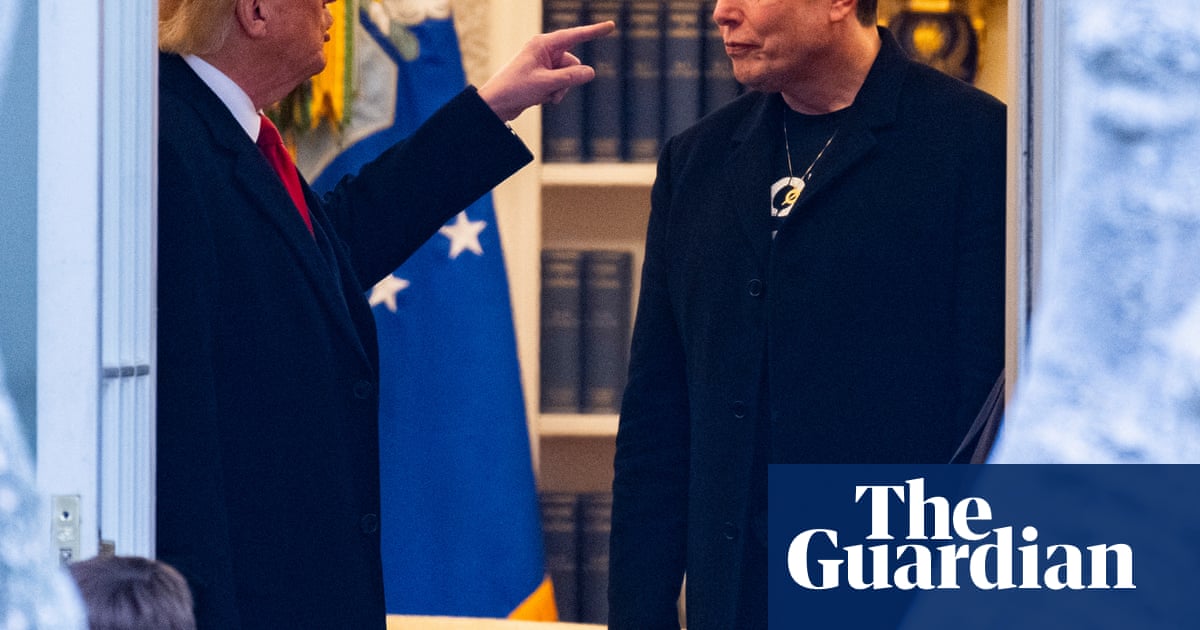Tensions Escalate Between Trump and Musk Over Political Allegiances

Donald Trump’s relationship with Elon Musk has reached a critical juncture as the former president and the tech mogul publicly exchanged sharp criticisms on Thursday. The tension seems to stem from Musk's assertion that his financial support played a crucial role in Trump's 2016 election victory. In a pointed post on X, Musk declared, “Without me, Trump would have lost the election, Dems would control the House and the Republicans would be 51-49 in the Senate.” He followed this with a remark about Trump’s “ingratitude,” highlighting the breakdown of their previously cooperative relationship.
This public spat marks a significant shift in the dynamic between the two influential figures. For some time, Trump and Musk had maintained a careful distance, avoiding direct confrontation. However, as discussions around Trump’s domestic spending bill intensified, the cordial facade began to crumble, revealing underlying grievances. Musk's claim of having influenced Trump's electoral success, particularly in battleground states like Pennsylvania, has ignited fresh controversy, especially since Trump has insisted that Musk’s support was inconsequential to his electoral victories.
In a swift escalation of hostilities, Trump threatened to retaliate against Musk shortly after the feud erupted. Posting on Truth Social, he suggested that one way to significantly reduce government spending could be to eliminate the various subsidies and contracts that Musk's companies benefit from. This statement added a layer of financial stakes to their personal conflict, as the stock market reacted swiftly; shares of Tesla, Musk’s electric vehicle company, plummeted by nearly 12% shortly after noon on Thursday, coinciding with the height of the public dispute.
Musk's dissatisfaction with the proposed Republican budget bill has been evident for weeks. He criticized the non-partisan Congressional Budget Office’s estimate that the bill would increase the national deficit by $2.4 trillion over the next decade, labeling the legislation a “disgusting abomination.” Trump’s patience seemed to wear thin on this issue, particularly during a meeting in the Oval Office with German Chancellor Friedrich Merz present. Trump mocked Musk’s physical appearance at the meeting, referring to a recent black eye Musk had received and questioning why he chose not to conceal it. “You saw a man who was very happy when he stood behind the Oval desk, even with a black eye. I said, do you want a little makeup? He said, ‘No, I don’t think so,’ which is interesting,” Trump said, expressing disbelief at the situation.
Further intensifying the feud, Trump accused Musk of changing his stance on the budget bill for selfish reasons, suggesting that Musk’s objections arose only after it became clear that Tesla would not benefit from the bill. Trump also mentioned withdrawing the nomination of Musk’s favored candidate for NASA due to these unfolding events. “I’m very disappointed with Elon,” Trump remarked, emphasizing that Musk had previously supported the bill before suddenly expressing opposition.
Musk, for his part, wasted no time in retaliating. Within moments of Trump’s comments being broadcast, he took to X to contest Trump’s version of events. “False, this bill was never shown to me even once and was passed in the dead of night so fast that almost no one in Congress could even read it!” Musk asserted, effectively accusing Trump of misrepresentation.
This public clash is particularly notable given the history of collaboration between Musk and Trump, a partnership that outlasted many expectations, including those of both Democrats on Capitol Hill and members within Trump’s circle. Musk had previously invested hundreds of millions of dollars into Trump’s re-election efforts through a political action committee called America Pac, which financed a significant portion of Trump’s grassroots campaign efforts. However, the tangible effects of Musk’s financial support on Trump’s electoral success remain a topic of debate.



























